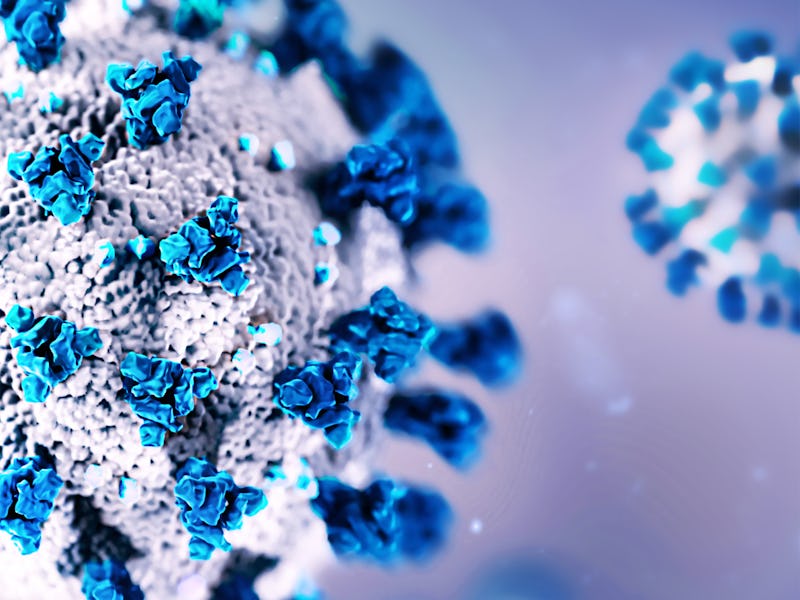You don’t need an Omicron-specific Covid-19 booster — here’s why
Get your booster.

People who have been vaccinated and boosted against Covid-19 appear to have long-lasting protection against serious complications from Covid-19 variants, including Omicron, for at least six months after their last shot. That’s according to several new, peer-reviewed studies and some preliminary data that is yet to be peer-reviewed.
This is great news for people who are vaccinated. When Omicron spread rapidly throughout the world, researchers were alarmed by the unexpectedly high number of mutations — 32 mutations on the spike protein alone. Both the Pfizer-BioNTech and the Moderna Covid-19 vaccines specifically target the original viruses’ spike protein — functionally teaching our body to recognize and attack the virus based on what its spike protein looks like.
Omicron, with all its mutations, poses a fresh challenge, as evidenced by breakthrough infections among those who had received two or three doses of the Covid-19 vaccine. While the vast majority of those infections have proven “mild,” in that they didn’t result in hospitalization or death, the simple fact they occurred led many to wonder if and when we’d need a fourth shot or even an Omicron-specific vaccine. After all, some of those who experienced breakthroughs were boosted.
Now, three studies and a preprint all point one way: The protection afforded by two or three Covid-19 vaccines should protect the vast majority of people from hospitalization or death for at least six months or more. We’re afforded this protection thanks to the long-term memory of our immune cells, the researchers say.
What the studies show— One of the new studies, published in Nature in late January, found that while Omicron is better able to evade antibodies than previous variants of Covid-19, specialized immune cells called T-cells were still 82 to 84 percent effective in recognizing and neutralizing the Omicron variant in vaccinated individuals.
As the authors conclude:
“Current vaccines still show robust protection against severe disease with the SARS-CoV-2 Omicron variant despite the substantially reduced neutralizing antibody responses.”
In a separate study, published in the same issue of Nature, a different group of researchers evaluate T-cell protection against Omicron in people who were vaccinated with either the Pfizer or Moderna vaccines. They found that 70-80 percent of CD4 and CD8 T cells — two groups of T-cells responsible for identifying and interfering with foreign pathogens — were still able to mount responses to the spike protein.
Further, despite having many more mutations, the magnitude of Omicron cross-reactive T cells was comparable to that of the Beta and Delta variants. “Cross-reactive” in this case means that immune cells trained to respond to one version of the virus — the original SARS-CoV-2 virus — are effective in responding to another version of the virus.
“T-cell responses in Omicron-infected hospitalized patients were equivalent to those seen in individuals hospitalized in earlier waves dominated by the ancestral, Beta, or Delta variations,” suggesting T-cell response is robust across a variety of variants of Covid-19,” the authors of this study write.
In the third study, published last week in Nature, another team of researchers found that six months after vaccination, memory B-cells, another kind of specialized immune cell, continue to mature and produce antibodies with the ability to recognize new variants of Covid-19. It is possible the protection they afford lasts beyond six months, and perhaps even years.
Ali Ellebedy, an immunologist at Washington University in St. Louis who led the study, tells The New York Times in a report that “those antibodies at six months are better binders and more potent neutralizers than the ones that are produced one month after immunization.”
B-cells and T-cells: A powerful combination
Both T-cells and B-cells are specialized immune cells with very good memories. Together, the research suggests that, in addition to T-cells, memory B-cells are also holding their own against Omicron. Vaccines instruct B-cells to encode a memory of the virus they can then use to produce antibodies to fight that virus.
A fourth investigation, which has not yet been peer-reviewed, supports the idea that B-cells have a form of “rapid recall,” maintaining their SARS-CoV-2 memory and their antibody-producing ability for some time, especially after a third dose of the mRNA vaccines — aka the booster shot.
Boosted individuals, these researchers write, have “a diverse memory B cell repertoire that can respond rapidly and produce antibodies capable of clearing even diversified variants such as Omicron.”
Taken together, these studies help explain why fully vaccinated and boosted people can get breakthrough infections, but aren’t typically hospitalized with Covid-19. This is despite the fact Omicron’s many mutations mean it can evade some of the protection the vaccines offer. But ultimately, the takeaway here is this: Get vaccinated and then get boosted.
Giving your body a set of instructions to recognize and fight SARS-CoV-2 means it is better equipped to fight any SARS-CoV-2 variant that comes your way — and that protection lasts.